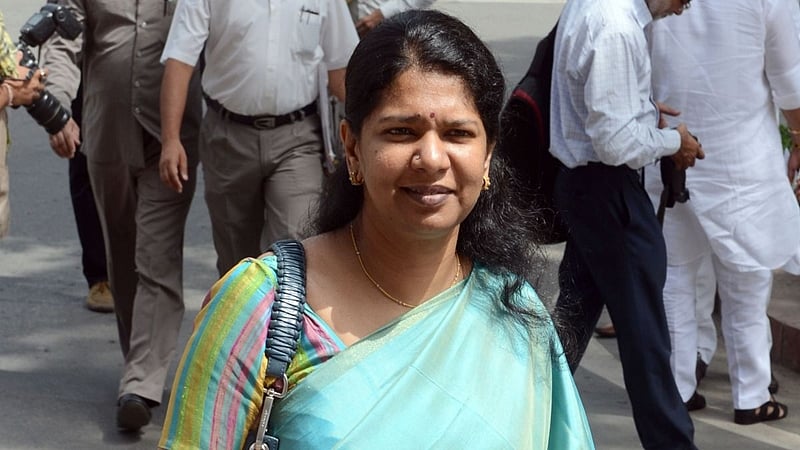The Asia-Pacific Economic Cooperation (APEC), a 21-nation group, met at San Francisco on November 11-17, close to Silicon Valley. The host, US President Joe Biden, addressed it on November 16. However, his four-hour discussion with Chinese President Xi Jinping the previous day continues to be in focus. They met a year after their last encounter at Bali.
The context needs to be understood before assessing the bilateral meeting. There is consensus that there was a shared desire to stabilise relations, derailed by China’s spy balloons over the US and US speaker Nancy Pelosi’s visit to Taiwan in August 2022.
It is also generally accepted that Chinese economic growth has entered a phase where the double-digit growth of past decades may never return. In the period 1980-2019, China grew at a rate three times that of the US. The World Bank now predicts a sharp slowdown of Chinese growth to 4.5% over the next year. The IMF sees a figure of 3:9% over the next five years. The Wall Street Journal notes that while China’s gross domestic product was 75% that of the US in 2021, it has now slipped to 64%.
The 2021 Chinese slogan that “The East is rising, the West is declining” sounds hollow today. The Chinese economy faces multiple challenges of bankruptcies, low consumer confidence and slowing exports. China can, by boosting consumer consumption, counter over-dependence on exports and infrastructure development. However, for President Xi that is ideologically heresy. China wanted Xi’s dinner with top US corporate sector honchos prior to meeting Biden. The Americans vetoed that. At that dinner Xi projected bonhomie and reasonableness. He asked: “Are we adversaries or partners?” He also recalled the century-old links between China and the US, including the building of the US' transcontinental train line by imported Chinese labour.
President Joe Biden played along with this public warmth and friendliness. But each side had their agendas and list of priorities, ranging from the doable to the aspirational. The US managed to extract resumption of military-to-military communications, both at the command and operational levels. China also agreed to help control the fentanyl-based opioid surge in the US by disrupting export of precursor chemicals as well as apprehending individuals running the networks. China also agreed to positively contribute at the climate conference COP28 in UAE. There was also agreement to have working-groups examine the use of Artificial Intelligence in nuclear weapons.
The US appears to have concluded that Chinese neutrality, if not active help, is crucial to managing climate change and outcomes of the Ukraine and Gaza conflicts. Xi’s tone of moderation, in turn, was far removed from “wolf-diplomacy” of the past few years which embraced aggressive posturing. Xi suggested that “the Earth is big enough to accommodate both countries”. Implicit in this otherwise peace-espousing articulation is the positioning of China as a second leg in a bipolar world. This projection of parity with the US was as much for his own people to see as for the edification of nations of the Global South.
But what Xi failed to get was the US lifting its stranglehold on transfer of dual-use high technology and unhindered investment to China. China wooed the US by buying 3 million tonnes of soyabeans, which would please the farmers and politicians dependent on their votes. There was also talk of purchasing Boeing’s 737 Max jetliners.
The question will persist whether this was merely a tactical manoeuvre by China to tide over its current economic challenges or whether it amounts to a strategic shift, driven by failure of its aggressive actions vis a vis maritime and continental neighbours. For China’s rivals it would be safer to wait and watch. Later this month presidential elections are being held in Taiwan. China could employ military or political compellence to shape its outcome. Alternatively it could lower the rhetoric.
How does all this impact India, which has always rejected any new bipolar order, with China treated as a second leg? At least so far the US has not indicated any weakening of its desire to contain China via partnerships like QUAD, AUKUS etc. However, the focus has shifted from India’s attempt to become the voice of Global South, with the Gaza war causing new and old fissures to surface. The fact China has been forced to temper its aggressiveness, at least temporarily, due to its unexpected economic slowdown is a lesson for BJP’s majoritarian and hyper-nationalist narrative. The Chinese economy, which was expected to overtake that of the US in a decade or less, is today struggling to keep up.
India’s attractiveness for the US and the west as a partner may diminish if the Chinese challenge abates. But India’s value as a secular, democratic model will persist, provided the vision of India’s founding fathers is not eclipsed by narrow ideologies and intolerance.
(KC Singh is former secretary, Ministry of External Affairs)











